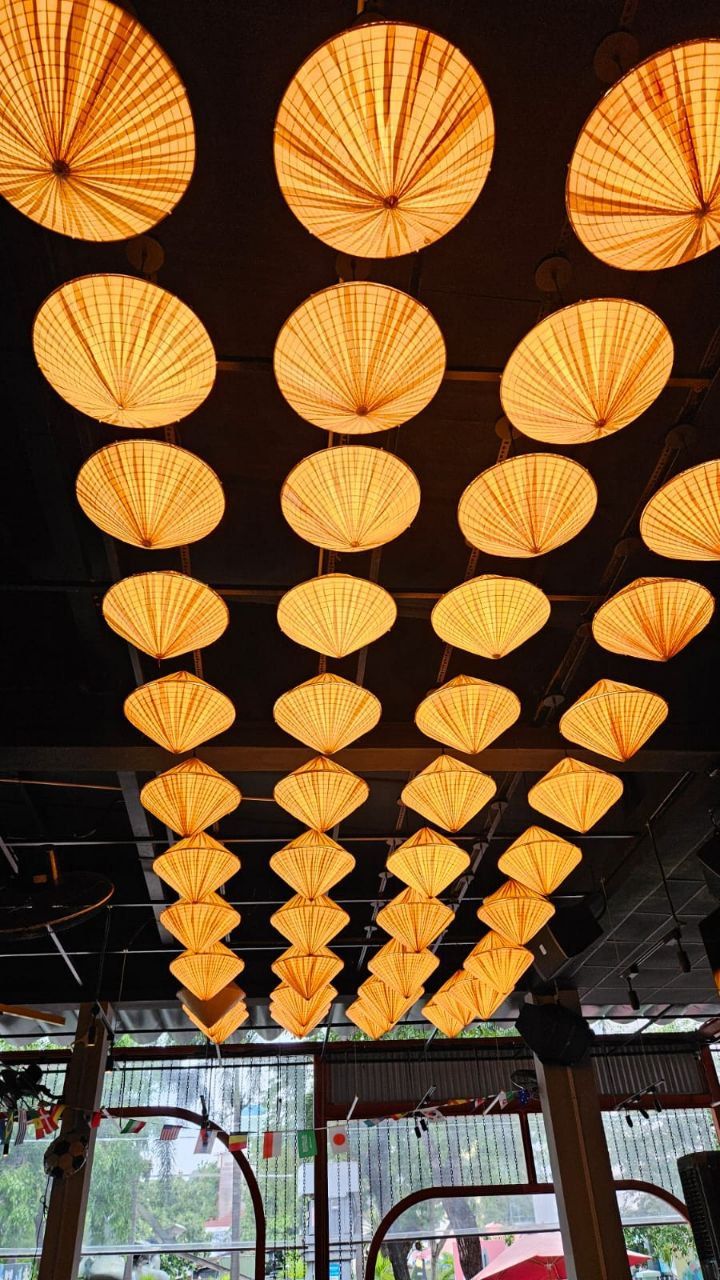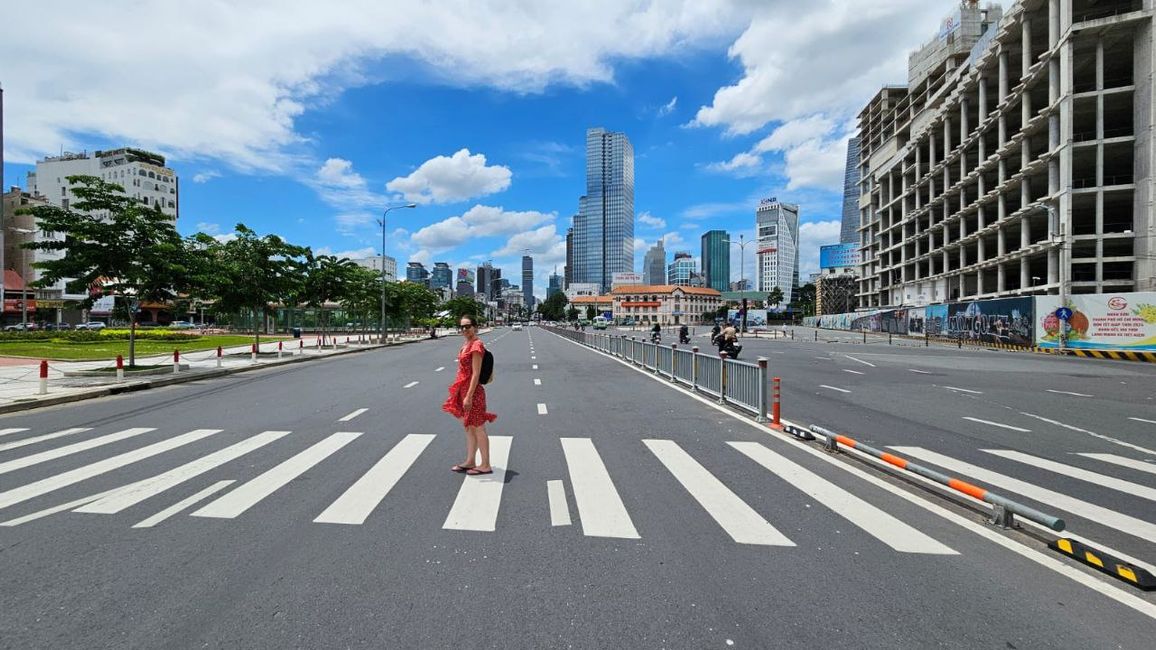
clara-marie-in-der-praerie
vakantio.de/clara-marie-in-der-praerie
Trek to Gunung Rinjani
Wɔatintim: 06.09.2024
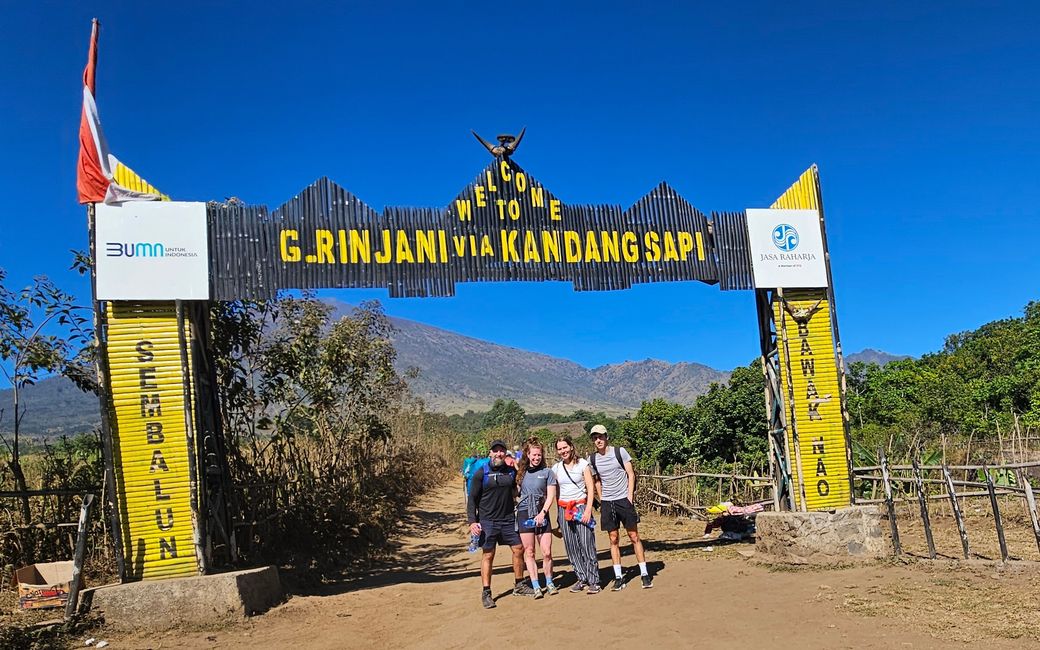
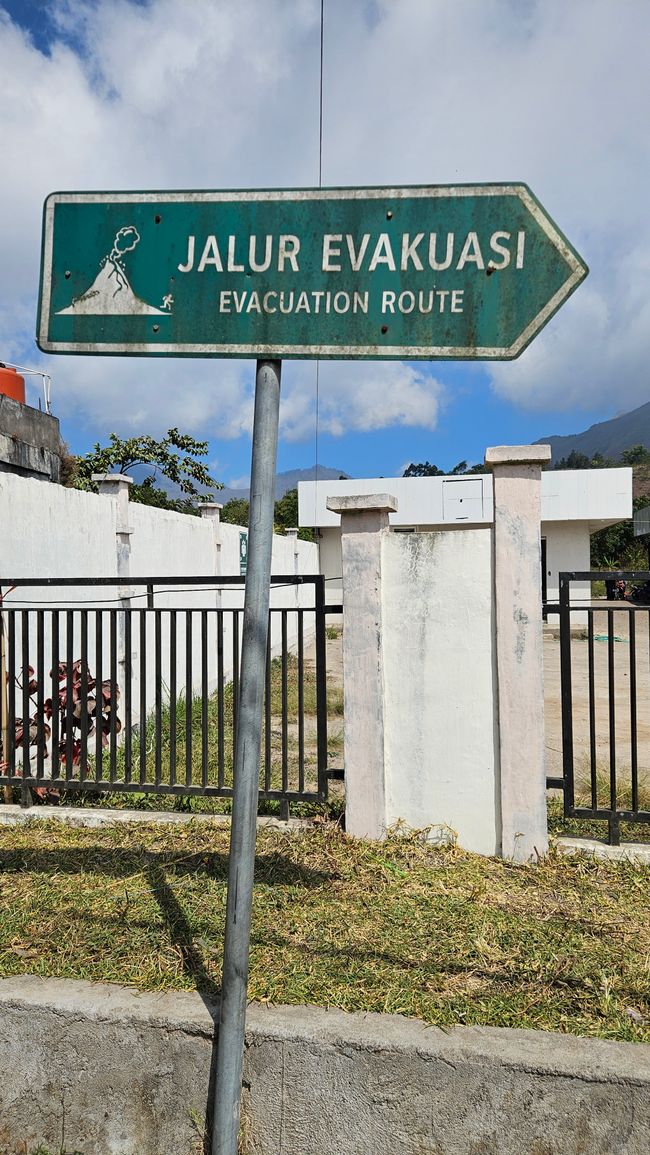
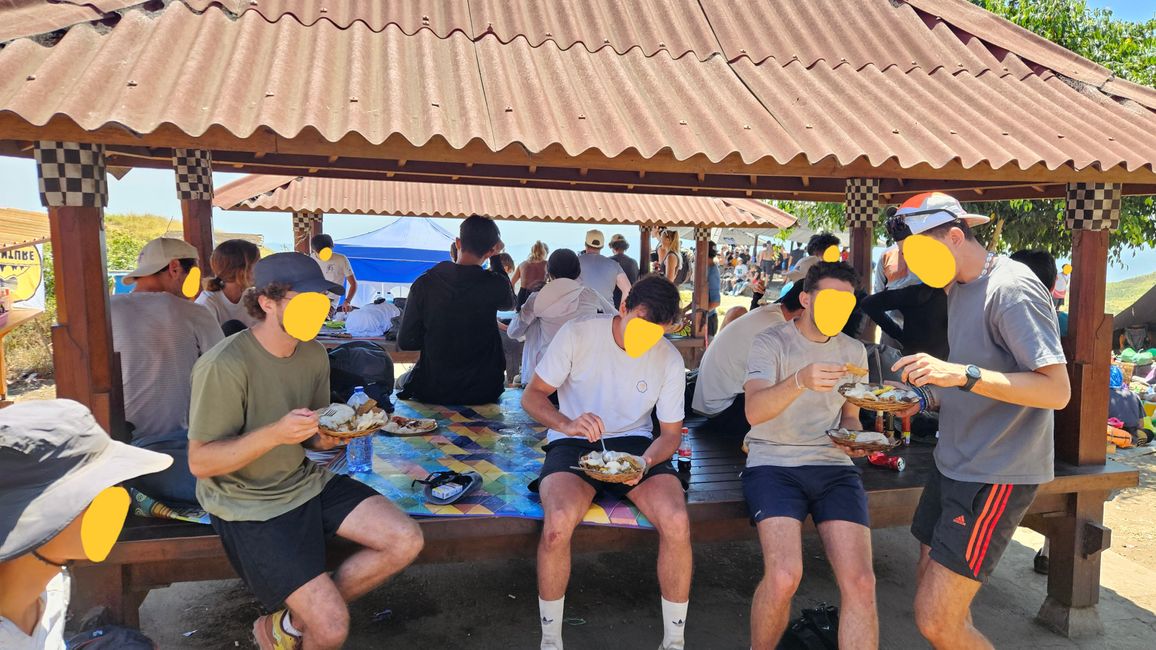
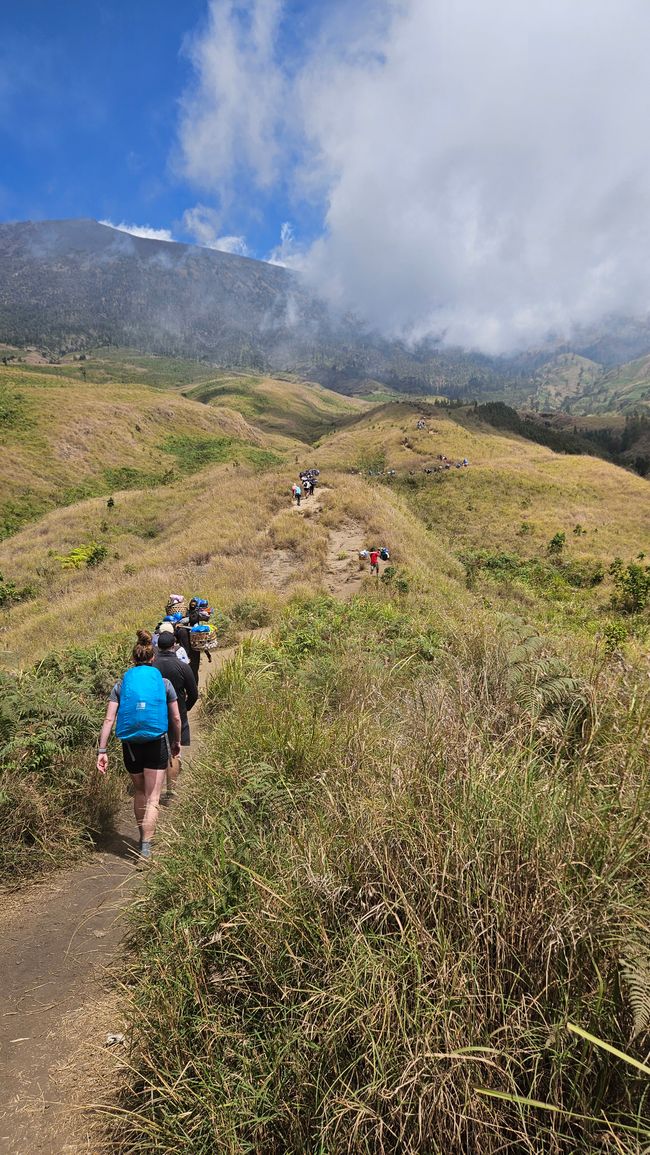
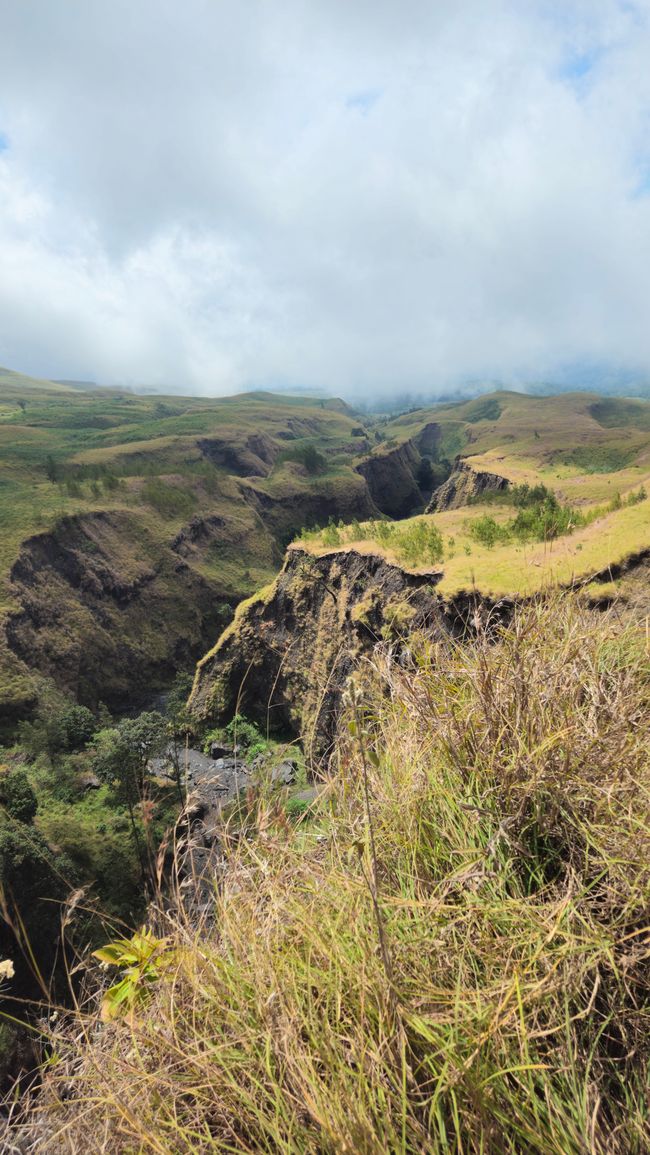
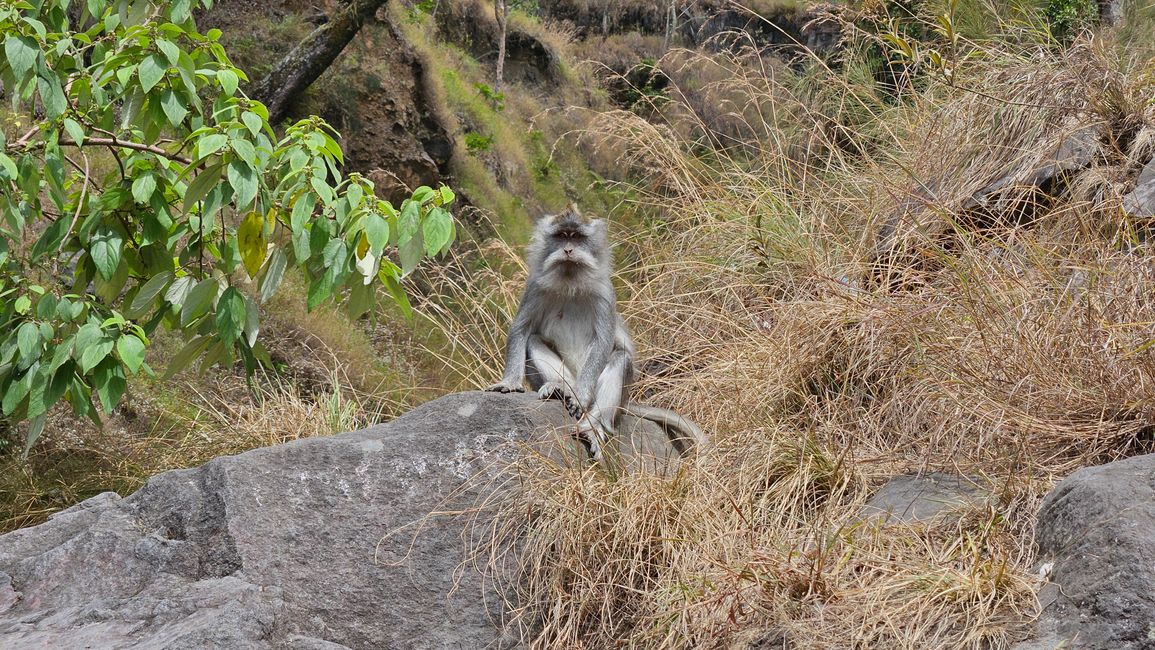
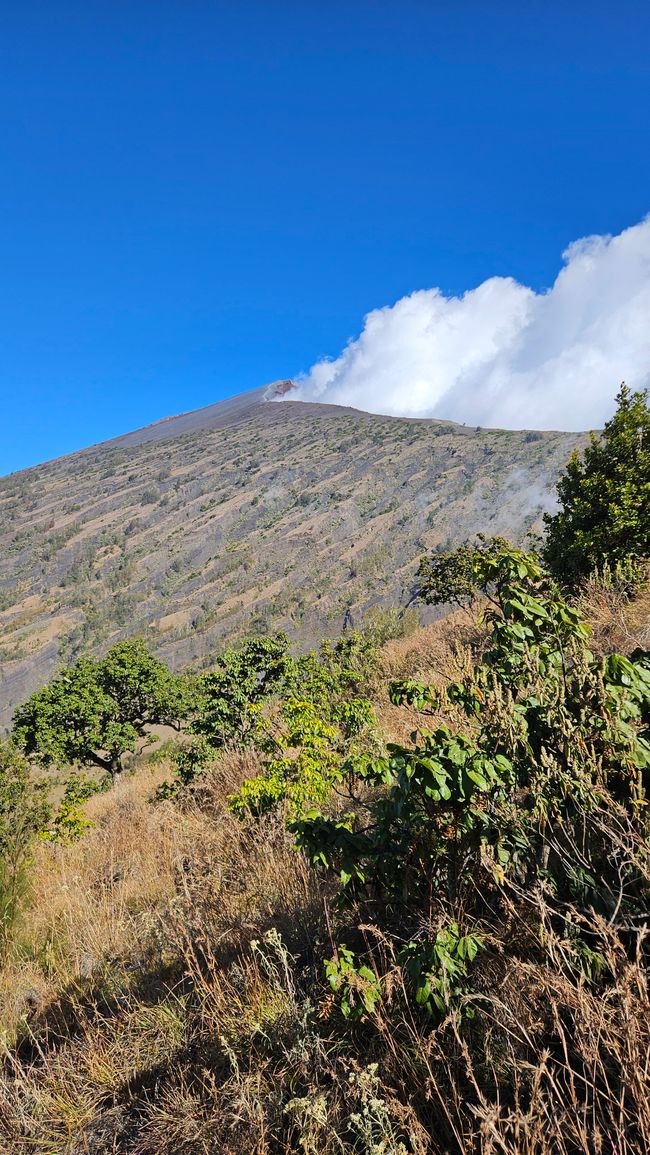
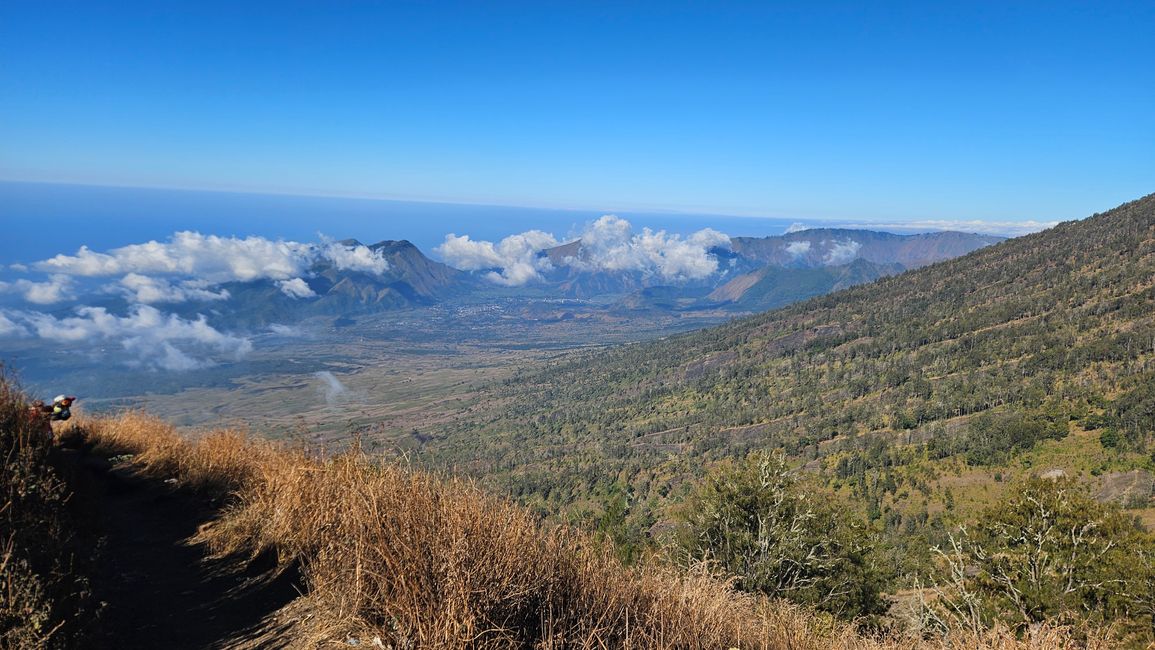
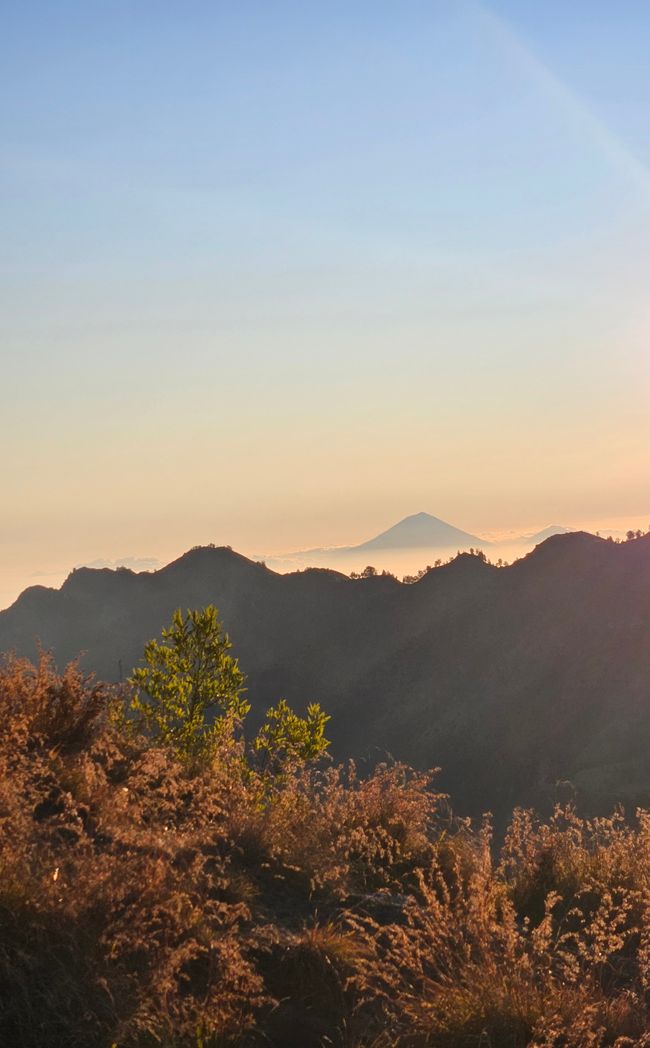
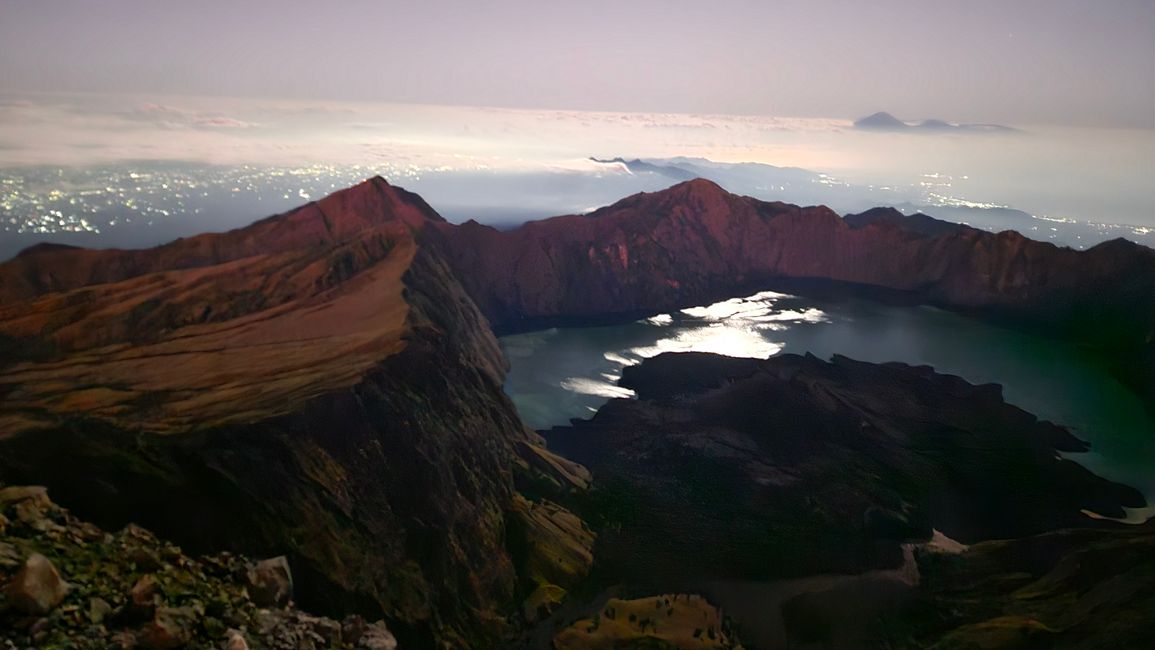
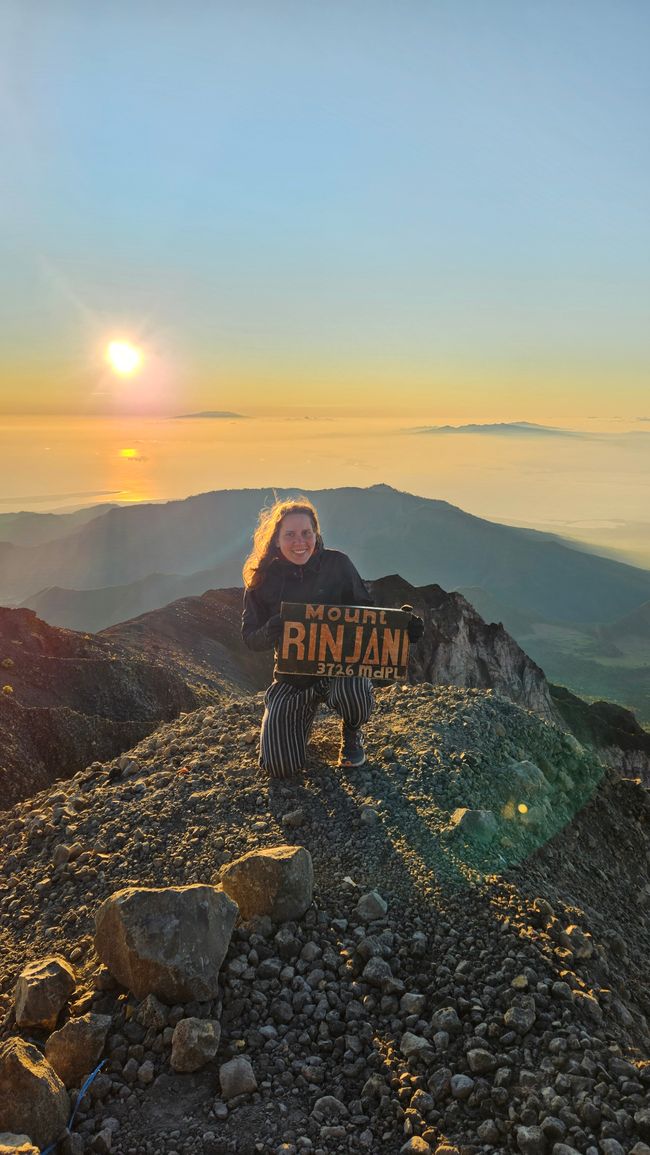
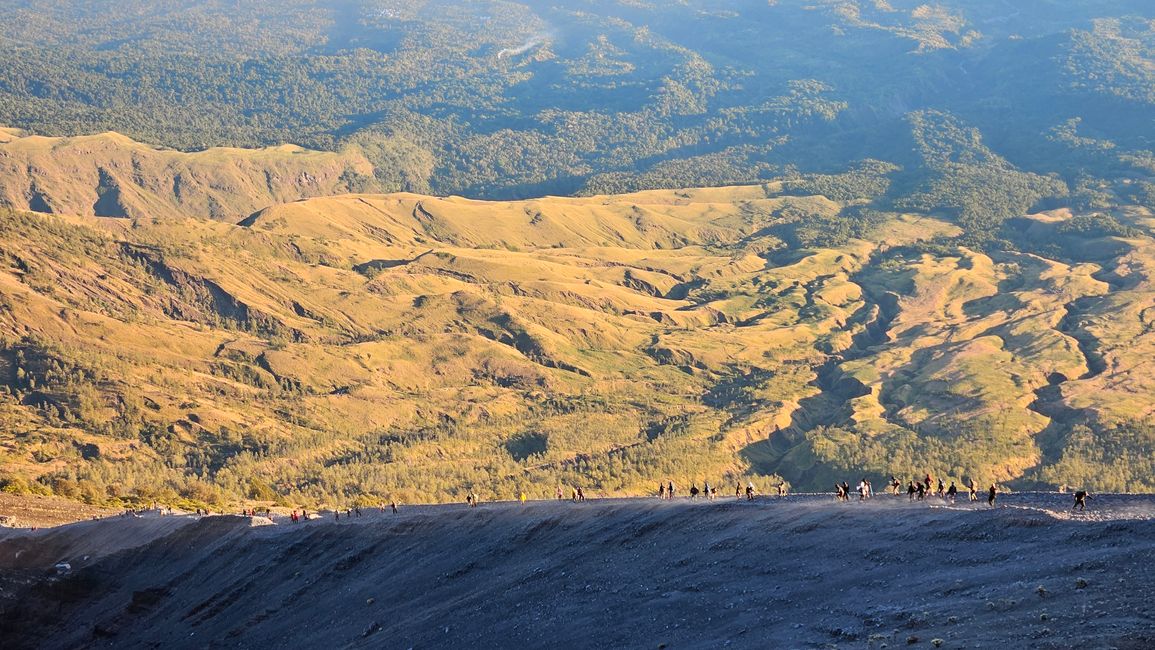
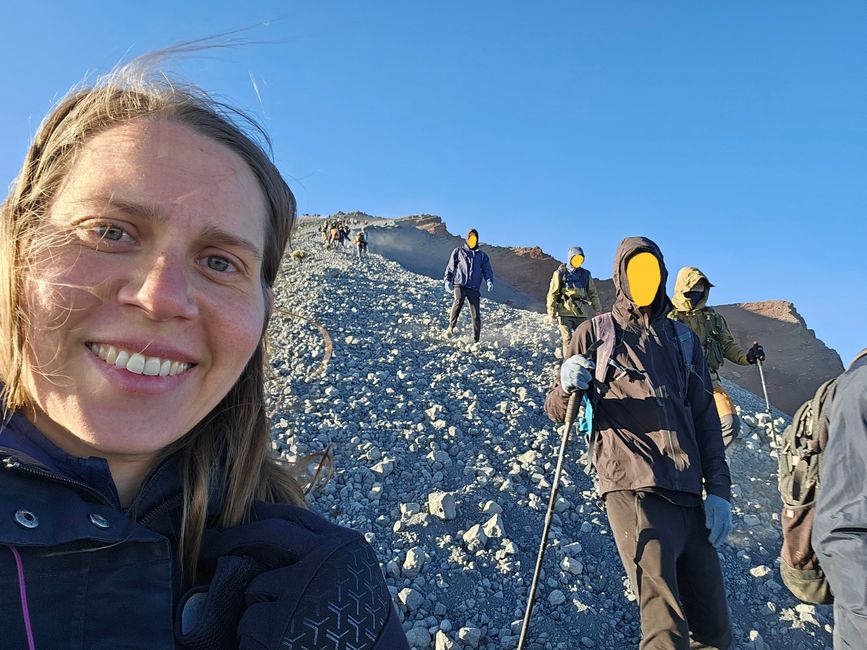
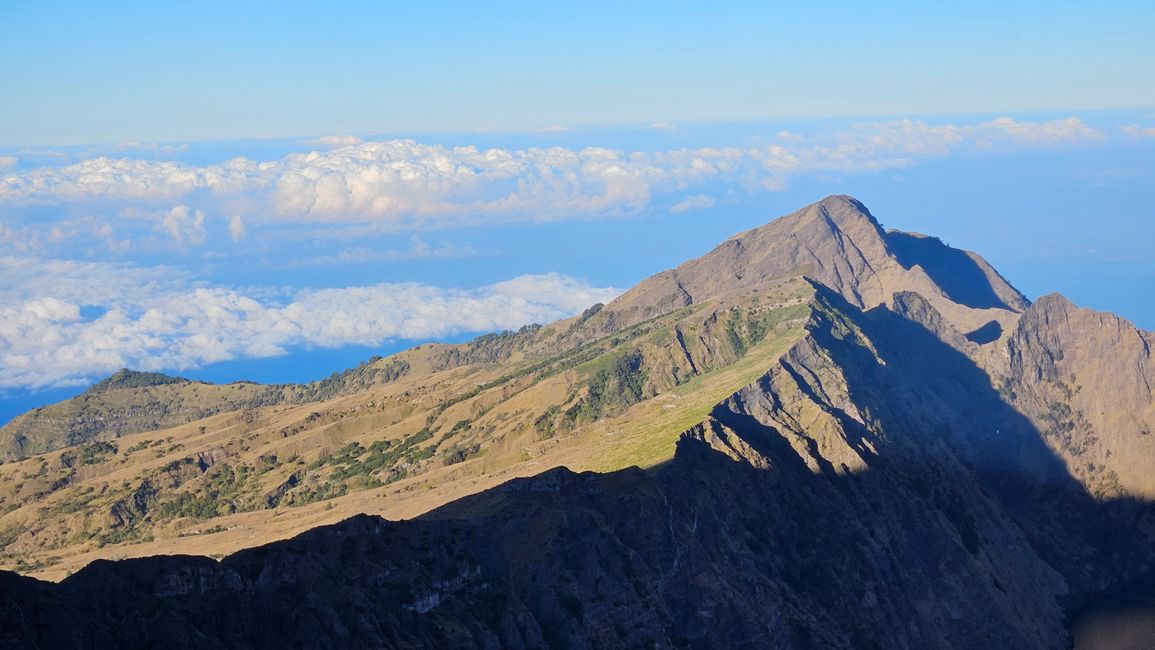
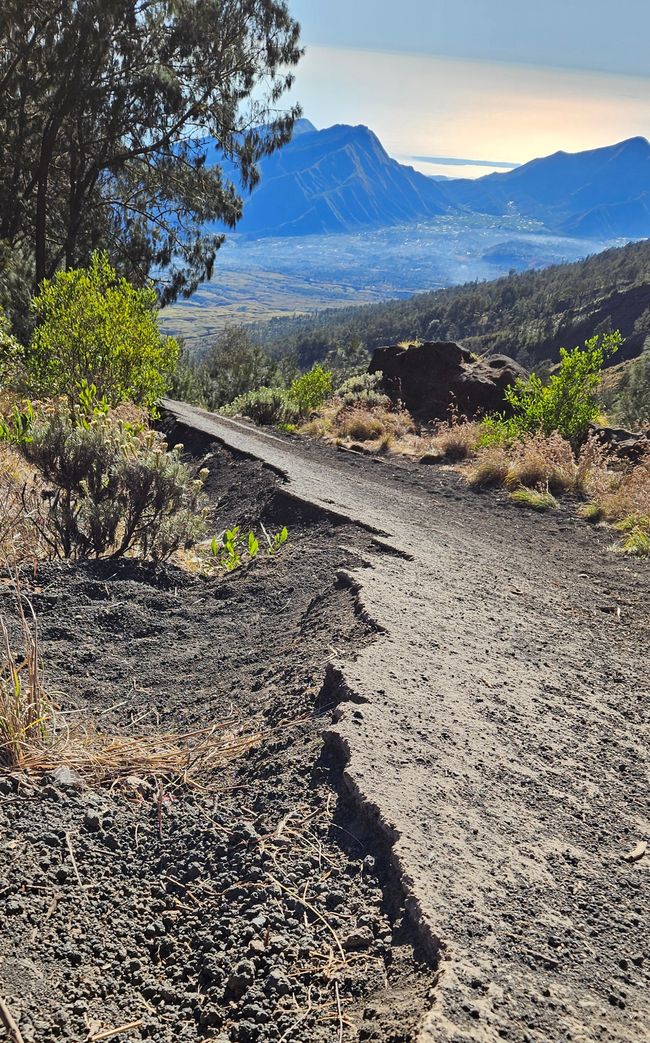
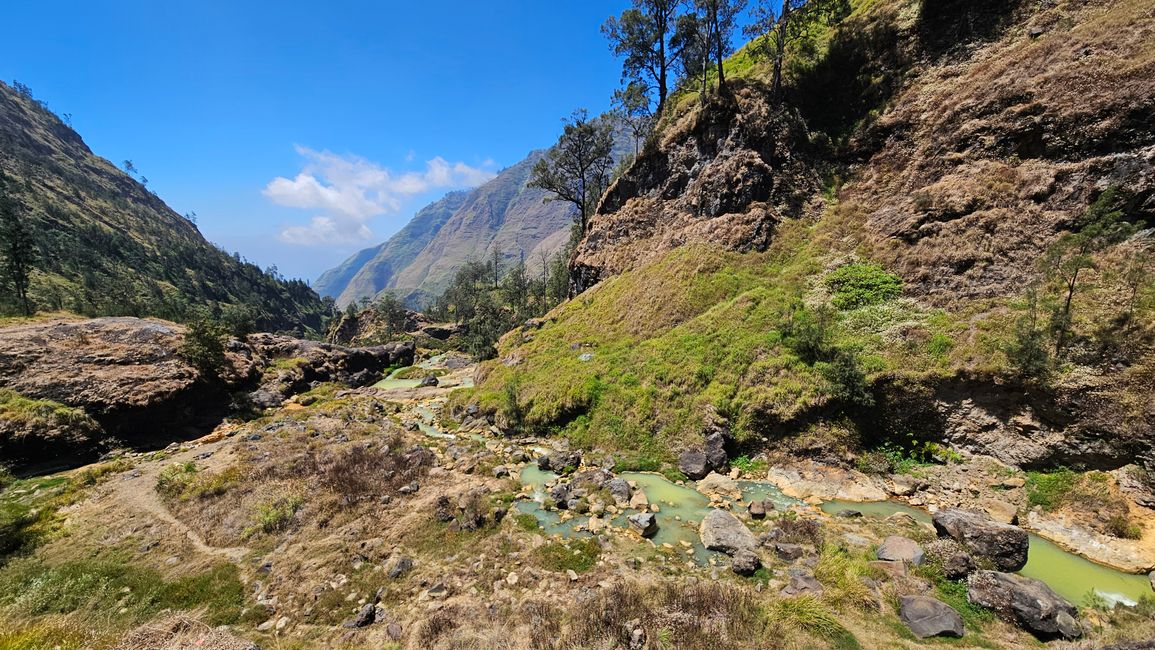
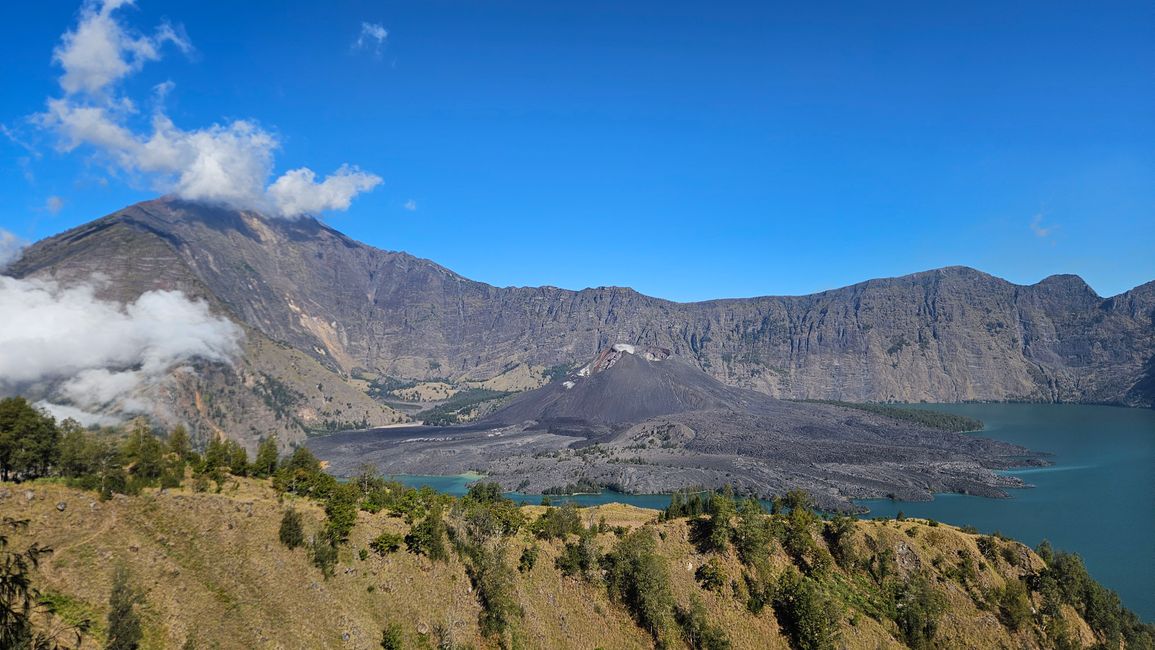
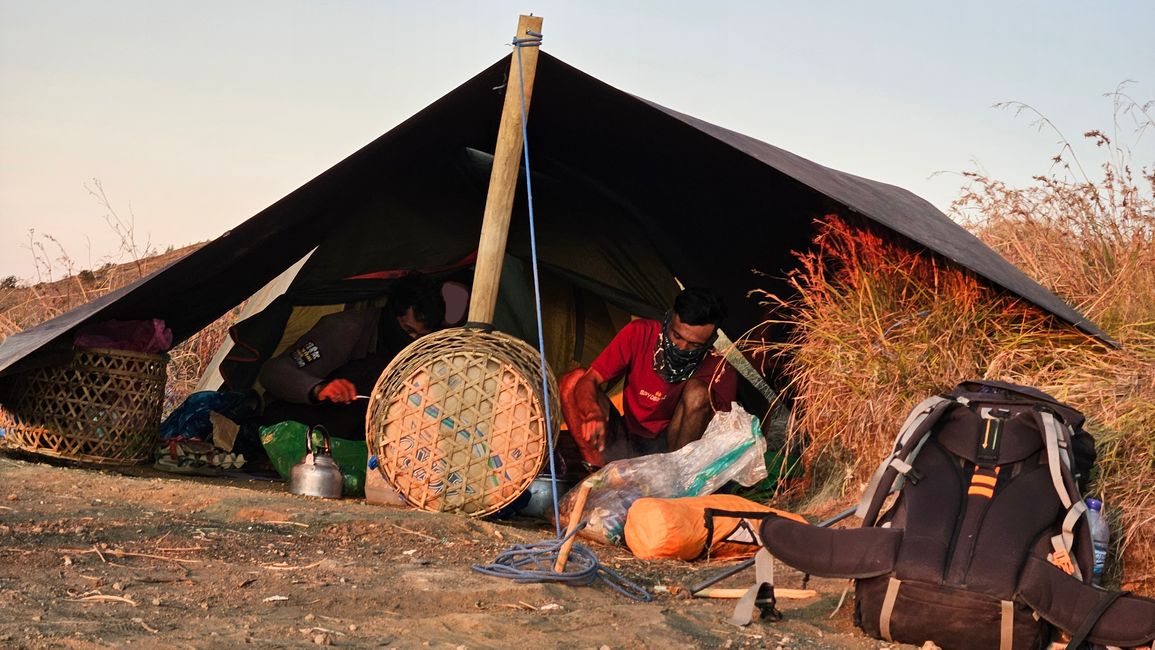
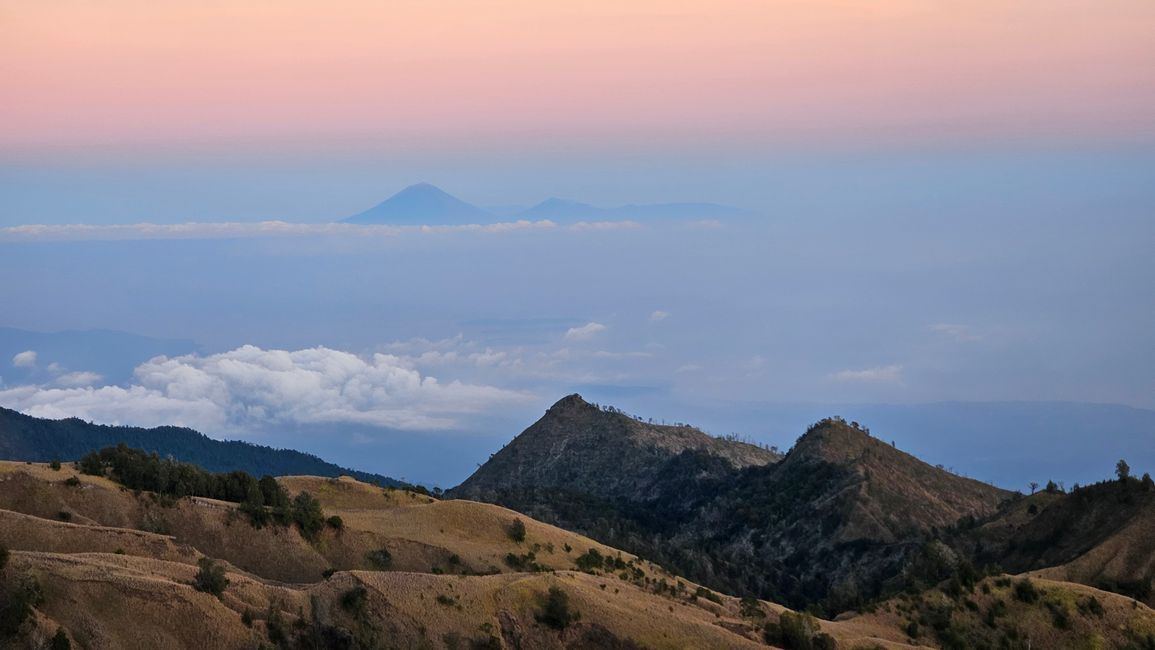
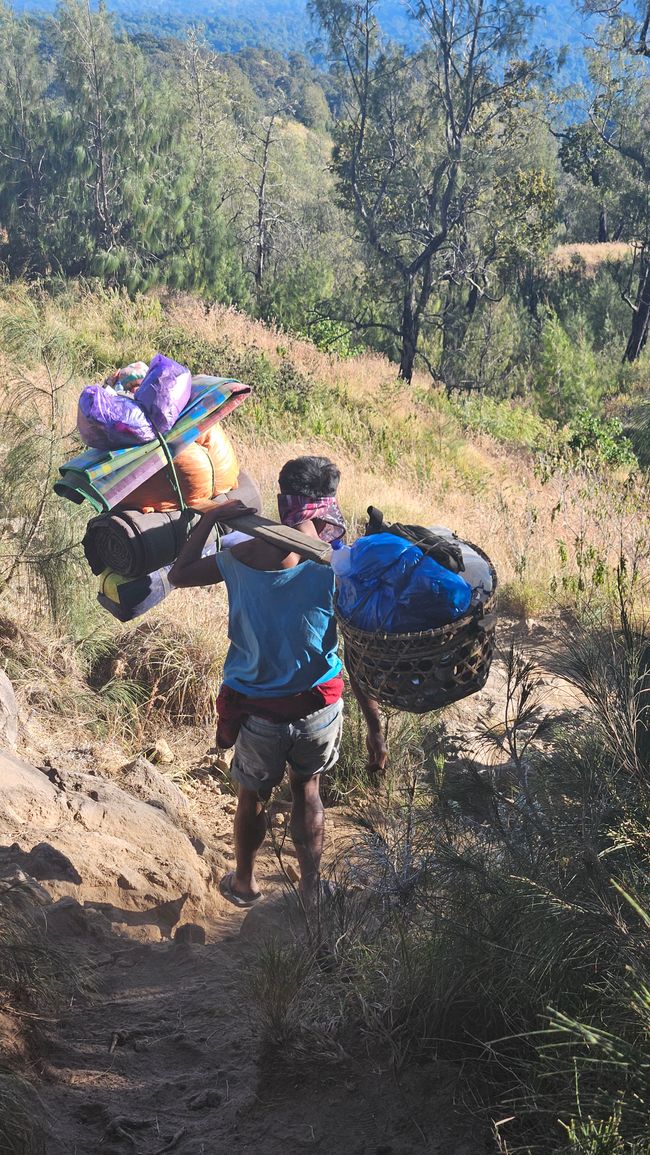
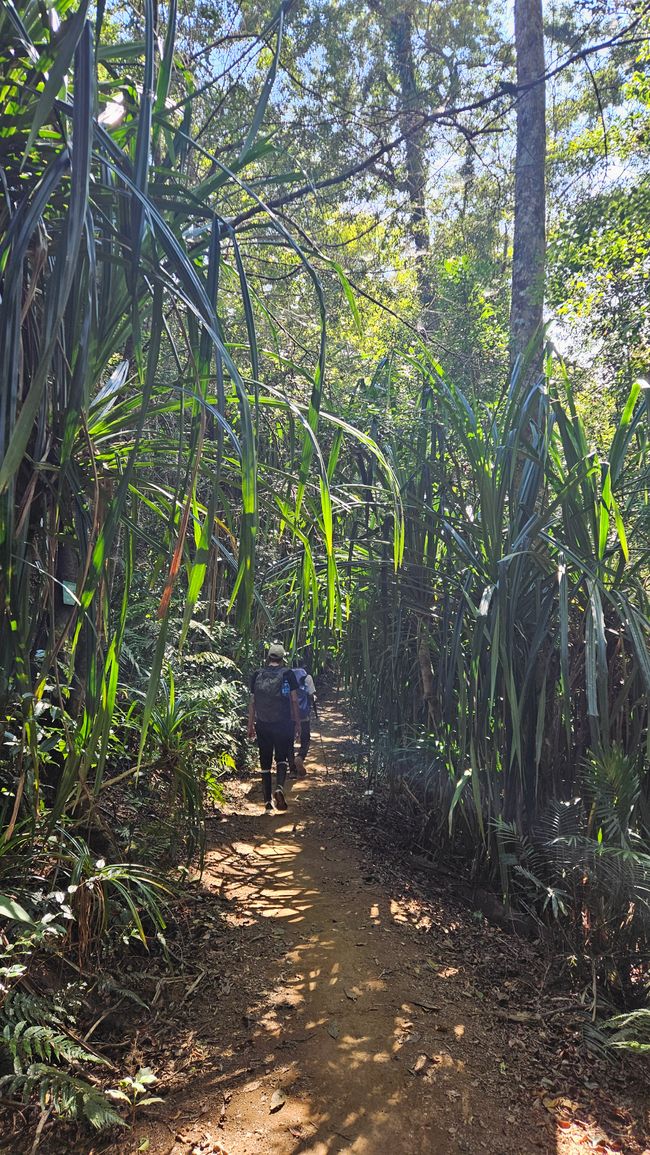
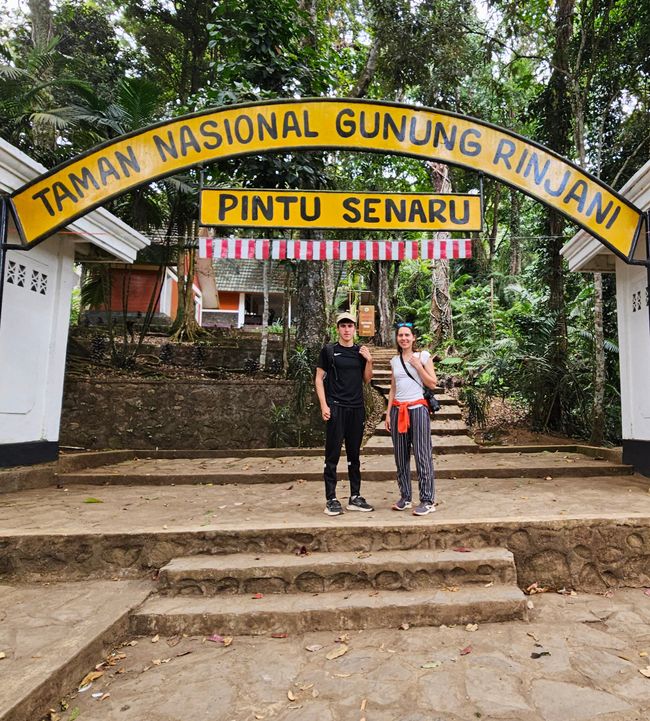
Kyerɛw wo din wɔ Newsletter no mu
From Tetebatu, I traveled to Sembalun, which is one of the two starting points for the treks to Gunung Rinjani. Most people choose the two- or three-day trek with one or two nights in a tent; I opted for the three-day tour. Other than that, there isn't much in Sembalun, so I just used the day to pick up a few things for the trek.
On the first day of the trek, we had to take care of some organizational matters first. The first stop was at a 'doctor’s office,' where they checked everyone's blood pressure and briefly asked about medical history (fractures, surgeries, etc.). Then we had to check in with our passports at the national park since only 250 people are allowed to enter the park each day and no one can go in without a guide.
My trekking team consisted of a British couple, a Swiss man, our guide, three porters who carried the food and camping gear over rough terrain, and me. When the trek finally began around 10 AM, we still had 12 km and 1,100 meters of elevation gain ahead of us. We overcame that in 6 hours with several short drink breaks and a long lunch break, and upon arriving at Basecamp Sembalun, we were treated to a wonderful view of Sembalun and our day’s work alongside Gunung Rinjani on one side. On the other side, we could already see the volcanic lake, and later enjoyed a beautiful sunset with Gunung Agung in Bali on the horizon.
The first night was rather short since we set off for the summit at 2 AM after a quick snack. The ascent consists of three parts: the first part is quite steep, but the ground is good for walking. The second part is 'mountain flat' (the guide said at the briefing the night before: 'even, but even in the mountain'), so it’s still quite steep, but mostly the ground is good. The third part is super steep, and you slide back down every two steps because the ground is like sand. This ascent was the most exhausting thing I have ever done in my life! But my group managed to stay within the anticipated ascent time like the day before, and thus, we were able to admire the dawn at the summit in freezing cold starting at 5:50 AM. The view for the sunrise made the early rise and the effort worthwhile.
But the descent was great too! First of all, it was super easy; one could move forward while running and jumping because the ground absorbed everything. This is probably what it feels like to jump on the moon. And the view into the crater, at the crater lake, and the second crater within the crater was simply stunning!
When we arrived back at Basecamp, our porters had already prepared breakfast, and after breakfast, everything was quickly packed up again. The British couple said goodbye to one of the porters as they were only doing the two-day tour. The rest of us then descended to the volcanic lake, where we had lunch and bathed in the hot springs. Afterwards, we went back up the other side of the crater to Basecamp Senaru. Here, we had another beautiful sunset over Gunung Agung while having dinner... And it wasn’t until two days later that I realized I had covered 14 km and 3,000 meters of elevation in one day.
The last day was relaxed because after breakfast during sunrise, we only needed to descend 8 km and 2,000 meters to Senaru. Just before the end of the national park, we had another lunch break. Around noon, we checked out of the national park and were then taken to our chosen location (as long as it was on Lombok).
All in all, it was an amazing trek that made me feel grounded again. However, there were also some negative aspects: for one, the trash in the camps and at all the places where breaks are taken. And I mean less the plastic waste that was just left lying around, or the food scraps that were thrown anywhere and attracted monkeys. Much worse, in my opinion, was the toilet paper that lay around everywhere and the holes dug as toilet substitutes that weren’t filled in after leaving the camp. Another issue is the treatment of the porters. They carry around 35 kg of gear, mostly meant for other people, and have to buy their own equipment for that. Since the maximum weight is limited to 35 kg per porter, food is simply saved depending on the size of the group – especially for the porters.
Kyerɛw wo din wɔ Newsletter no mu
Anoyie
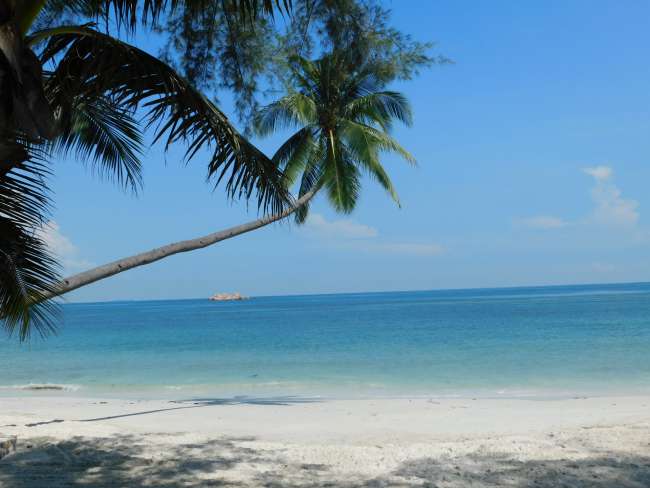
Akwantuo ho amanneɛbɔ Indonesia
